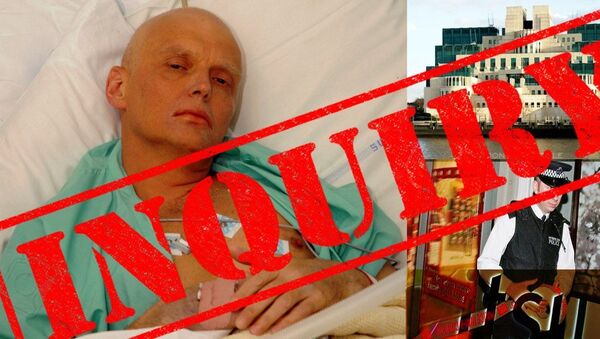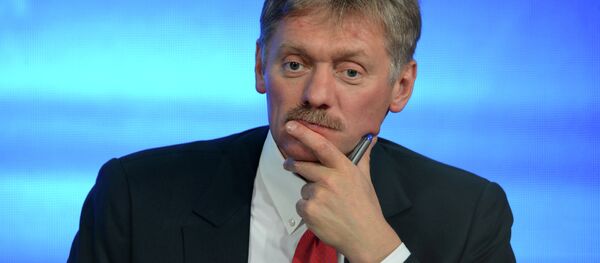The so-called public inquiry final report, released Thursday, found that Litvinenko was poisoned using Polonium-210 by former FSB officers Dmitry Kovtun and Andrei Lugovoy, on the orders of Nikolai Patrushev (head of the FSB in 2006) and "probably" Putin.
The #Litvinenko inquiry failed to take oral evidence from either of the accused https://t.co/jBI5j72t7R pic.twitter.com/U66gKRcEXI
— Sputnik UK (@SputnikNewsUK) January 21, 2016
There has never been an inquest proper or a criminal trial in the Litvinenko case and both Kovtun and Lugovoy deny the charges.
Litvinenko fled to London in 2000 after making a series of dramatic allegations about the FSB and Putin and being dismissed from the service. Chief among the allegations was that the FSB had been ordered to kill the tycoon Boris Berezovsky.
LIVE on #Periscope: Putin 'probably' to blame for #Litvinenko killing @sputniknewsuk https://t.co/JDOx52UydH
— SputnikJim (@sackthelot) January 21, 2016
The public inquiry found that Litvinenko had been paid £2000 a month by the UK intelligence service MI6 for information about Russian organized crime. According to Lugovoy, Litvinenko had tried to recruit him as an MI6 agent.
The report claims Lugovoy and Kovtun poisoned Litvinenko in the Pine Bar in the Millennium Hotel, London in November 2006 in reprisal for his outspoken views on the FSB and Putin himself.
The so-called #Litvinenko public inquiry final report, released on Thursday https://t.co/jBI5j72t7R pic.twitter.com/MLCCuaamb4
— Sputnik UK (@SputnikNewsUK) January 21, 2016
The public inquiry — chaired by Sir Robert Owen — failed to take oral evidence from either of the accused and also heard a "considerable quantity" of evidence behind closed doors.
UK Home Secretary Theresa May made several attempts to prevent the inquiry taking place and there has never been a criminal trial.
Litvinenko's Death by Radiation Poisoning
Alexander Litvinenko had been an officer of the Russian FSB security service, who, in 1998 accused the Russian authorities of conspiring to assassinate the tycoon Boris Berezovsky (found hanged in his bathroom in March 2013). He also alleged widespread corruption within the FSB.
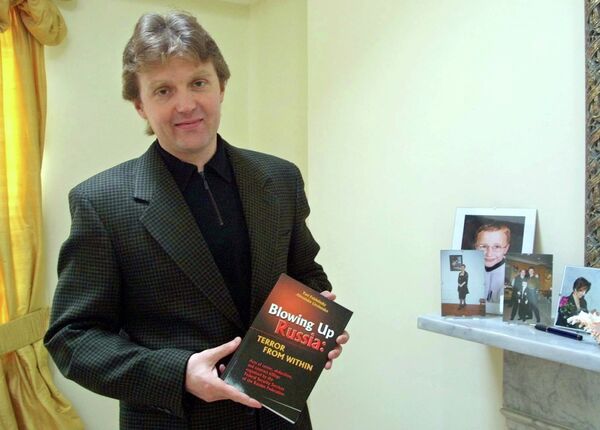
Litvinenko was arrested on charges of exceeding his authority and acquitted in 1999.
On November 1, 2006 he met two Russian men, both ex-FSB officers — Dmitry Kovtun and Andrei Lugovoy — in the Millennium Hotel, in Grosvenor Square, London, where he had a cup of tea.
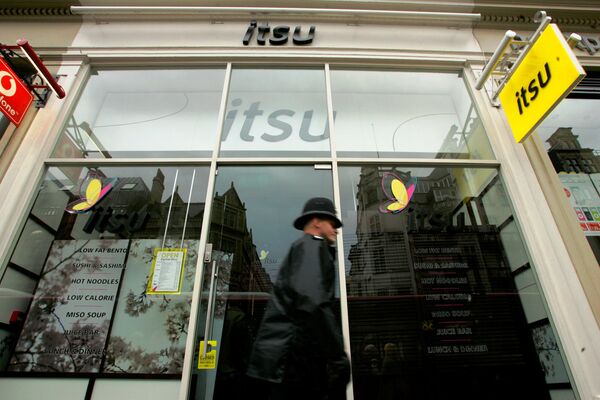
Litvinenko complained of illness that evening and was admitted to hospital. He suffered a slow and agonizing death from radioactive polonium-210 poisoning and died in University College Hospital on November 23, 2006.
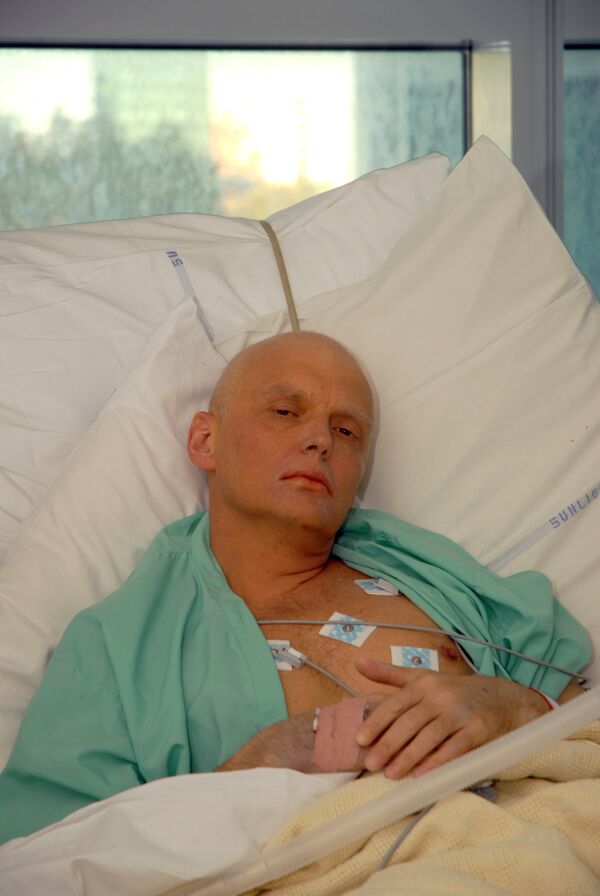
The British authorities claimed that Kovtun and Lugovoy poisoned Litvinenko with pololium-210. Evidence of the radioactive substance was found on the aircraft both Russians traveled on, as well as in all the places the three men met. Kovtun and Lugovoy have both totally denied the accusations.
Blocked Inquest
The original inquest into Litvinenko's death had stalled for eight years, because of the UK government's dogged refusal to allow evidence from its security agencies — MI5, MI6 and the police. Sir Robert Owen, who originally acted as Her Majesty's Assistant Coroner for Inner North London, held a series of preliminary hearings, but the inquest never actually got underway in eight years.
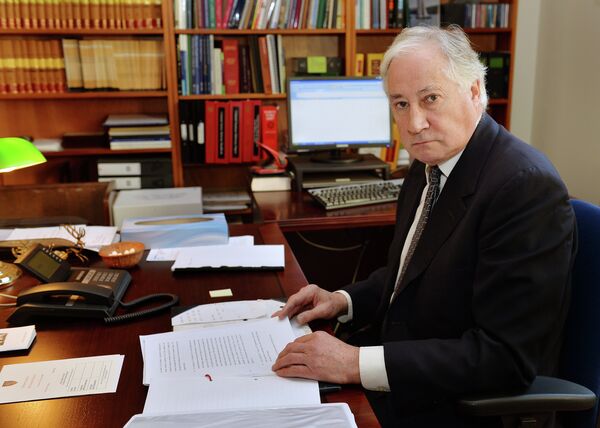
In the end, Sir Robert appealed successfully for the inquest to be turned into a public inquiry which would be able to 'hear' the evidence, but not necessarily in public. However, British Home Secretary Theresa May announced that "the inquiry will not address the question of whether the UK authorities could or should have taken steps which would have prevented the death."
"In reality it means that the relevant materials, which the British authorities consider 'classified' would be discussed at closed hearings in London.
"They would be accessible neither to the Russian Investigative Committee nor to the public as a whole," a statement said.

